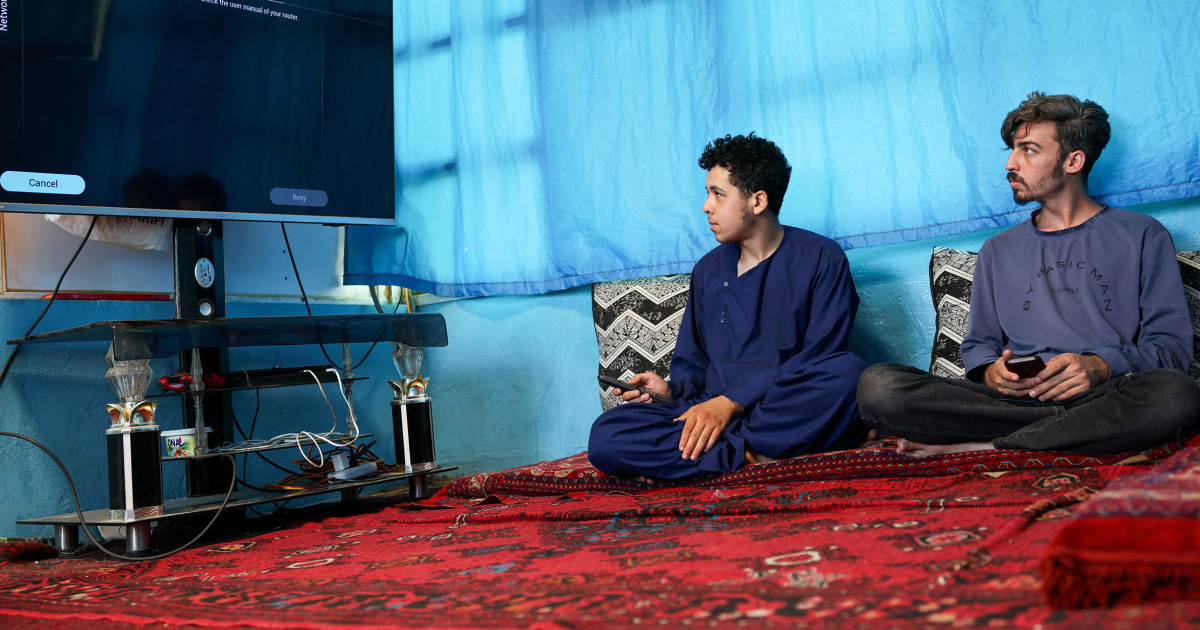The Taliban has denied imposing a nationwide internet ban, claiming instead that the blackout consuming Afghanistan was due to old fiber optic cables that were now being replaced.
Wednesday’s announcement was the Taliban’s first public statement since a communications blackout hit the country of over 40 million people, disrupting everything from banking to travel and businesses to aid work.
The Taliban’s Urdu language website Al-Emarah quoted spokesman Zabihullah Mujahid as saying that some people were spreading rumors about a ban on internet access in the country, which he said were not true.
However, one senior Taliban leader in Kabul told NBC News: “We don’t understand what’s happening in the country. Nobody is telling us as majority of the people don’t have access to each other.”
It comes after several provinces said last month they would shut down the internet after a government order to crackdown on immorality, fueling fears about new limits on access to the outside world.
Internet watchdog NetBlocks said Monday that a near nationwide telecoms disruption was in effect. Less than two hours later, it announced that Afghanistan was “now in the midst of a total internet blackout.”

The United Nations urged Taliban authorities “to immediately and fully restore nationwide Internet and telecommunications access,” in a statement Tuesday.
The shutdown has left millions of people from Afghanistan who now live outside the country distressed, with many unable to contact their loved ones. Flights out of the country have also been canceled, adding to the sense of chaos and isolation.
Indiana resident Sofia Ramyar, 33, is one of them.
Ramyar says that she hasn’t been able to contact her family, some of whom live in the capital Kabul.
“The blackout has created a deep sense of isolation and has further silenced those already struggling to be heard,” Ramyar told NBC News. “This blackout has fully cut off the country from the digital world in a way we have never seen before.”
Ramyar serves as an advisor to Afghans for Progressive Thinking (APT), a youth-led non-profit that focuses on advancing women’s rights and educational opportunities for girls. She added that the blackout has impacted her ability to serve those women, adding that her work “relies heavily” on online access and that the situation in Afghanistan continues to be “unpredictable.”
“Their safety is always a concern,” she added.
Naseer Kawoshger, 29, who left Afghanistan in 2020 and now works as a cashier at a grocery store in Chicago, said he has also been unable to speak with his family in Kabul.
“When I sent a message to my sister, my brother, there was only one tick and I saw that the message wasn’t being sent,” Kawoshger said. “I don’t know what happened to my country, what happened to my family.”
Aid officials have warned the blackout was hampering their operations in the country, which has been battered by a series of economic and humanitarian crises since the Taliban swept back to power in 2021 as the U.S. withdrew.
The hardline Islamist regime has faced global criticism for its treatment of women, but has recently sought better ties with Washington.
“Reliable communications are essential for our ability to operate, to deliver life-saving assistance, and to coordinate with partners,” Save the Children said in a statement Wednesday.

